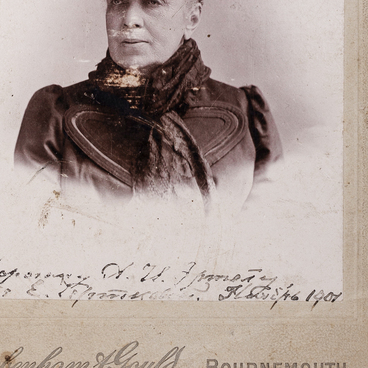This “book romance”, as Ertel himself put it, lasted for a year and a half and led to a wedding.
Ertel’s father-in-law was a well-read and educated man, and Alexander Ertel soon got acquainted with his friend — the famous Narodnik writer Pavel Vladimirovich Zasodimsky. The two began to correspond. In 1879, Ertel accepted Zasodimsky’s offer to move to Saint Petersburg. Zasodimsky opened a library on the corner of Liteynaya Street and Nevsky Prospekt, and he invited Ertel to become its manager.
From the spring of 1879, Alexander Ertel and his wife Mariya began to live in Saint Petersburg, sometimes leaving their daughter, two-year-old Olya, with her paternal grandmother Avdotya Petrovna Ertel at the hamlet near Gryaznusha.
In Saint Petersburg, the writer met some representatives of the revolutionary youth. He did not delve into their work and did not believe in their revolutionary plans but allowed them to use his address to send various parcels and money. Ertel’s address was encrypted in a secret printing house in Kiev, and when the police arrested this printing house, the address was found and Ertel was arrested.
On April 3, 1884, he was imprisoned in the Peter and Paul Fortress. Ertel’s seven-year-old daughter Olga was sick with diphtheria at the time. On the eve of his arrest, the writer took her to the children’s hospital and was now tormented by the absence of news. Olga died in the hospital, but once Ertel’s wife Mariya visited him in prison and saw the state he was in, she decided to withhold that information from him.



